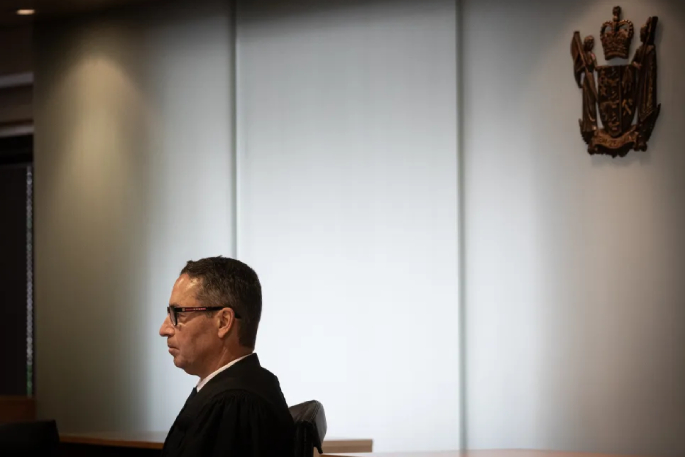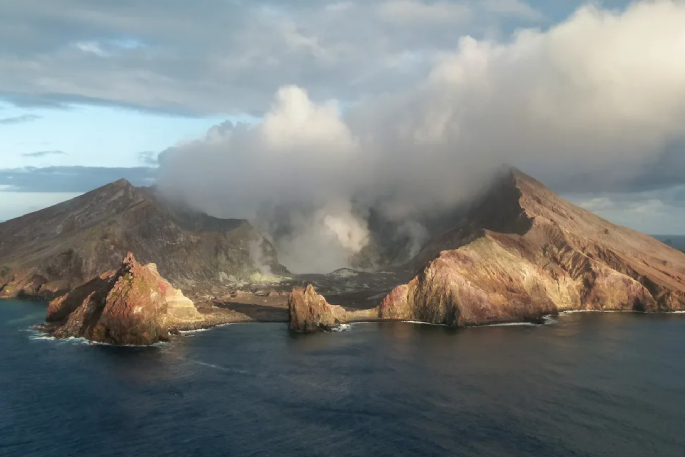WorkSafe alerted officials that it was running out of money to fund its prosecution over the deadly Whakaari/White Island disaster a month before the trial began last year.
The agency's prosecutions over health and safety failings in the lead-up to the tragedy have so far cost more than $17 million but it is not over yet, with appeals and a coronial inquiry still to come.
The judge-alone trial ended last September with the conviction of the company managing the volcanic island, Whakaari Management, after six parties pleaded guilty and six had charges dismissed.
WorkSafe initially charged 13 parties following its investigation, after the disaster killed 22 people and injured 25 others.
A briefing paper prepared by Ministry of Business, Innovation and Employment policy officials shows in June last year, a month before the trial began, WorkSafe expected to run out of funds within two months.
"At that time, WorkSafe indicated to MBIE that while it still retained $2.1m of its initial Budget 2021 funding, it would not have sufficient resourcing to complete the Whakaari case with the remaining funding expected to be exhausted during August/September 2023."
The agency requested that its shortfall for the remainder of the court hearings be covered - although that tally was redacted.
"This included only likely/certain costs and excluded any costs that may arise from a possible future Commission of Inquiry or other third-party review."
 Judge Evangelos Thomas presided over the trial. Photo: NZ Herald / Jason Oxenham.
Judge Evangelos Thomas presided over the trial. Photo: NZ Herald / Jason Oxenham.
In September, Cabinet agreed to make funding available to meet WorkSafe's estimated costs, by reprioritising $1m of funding and setting up a tagged contingency fund "to be drawn down by request to joint-Ministers once other funding had been exhausted".
The amount set aside in the contingency fund was redacted, although the briefing document says the fund would expire in February 2025.
"It is expected that future drawdowns will be requested quarterly throughout 2024, due to the ongoing nature of the case."
WorkSafe received approval to draw down $862,000 from the contingency fund to cover its legal costs until March.
The extra funding will be recovered from the Health and Safety at Work Levy, which also funds WorkSafe's general activities.
The levy is charged to all employers and is expected to generate just over $140 million revenue this financial year and $150m the following year.
MBIE manager of health and safety policy Hayden Fenwick says they forecast a $7m surplus for the 2024/2025 financial year.
"When establishing the Whakaari/White Island funding contingency, it was determined that the Health and Safety at Work Levy Memorandum account had a sufficient operating surplus to fund WorkSafe's estimated costs for the remainder of the prosecution."
The government granted MBIE and WorkSafe $19m in its 2021 budget to cover costs relating to the Whakaari prosecution.
"While WorkSafe's baseline funding is expected to cover its enforcement activity in the normal course of events, it was recognised that this was a rare catastrophic event and would be the largest and most complex prosecution in WorkSafe's history and that additional funding would be required," the briefing document says.
The briefing document says the benefits of providing the funding were to help protect New Zealand's tourism reputation, pursue justice for victims, explore health and safety legal precedents through the courts and enable WorkSafe to fund short term legal costs without taking away from other services.
The owners of Whakaari/White Island will have their appeal of the criminal conviction against their company which managed access to the volcano heard in August.
Workplace Relations and Safety Minister Brooke van Velden says in response to a written question in Parliament that WorkSafe had spent $17m on the Whakaari prosecution at the end of March 2024, with $11.8m of that was on legal costs paid to Meredith Connell.



2 comments
Hmmm
Posted on 14-05-2024 17:02 | By Let's get real
A sad situation, but I'm of the opinion that it was an "act of god" occurrence and millions have been spent trying to blame someone. Which as far as I'm concerned is totally unacceptable.
Who do we blame when we get the "predicted" 9+ earthquake and enormous Tsunami when the Hikurangi subduction zone gives way...? Because someone must be responsible in NZ.
Lolly scramble.
Posted on 15-05-2024 14:05 | By morepork
"Justice for victims" is one thing; turning a tragedy into a lolly scramble is quite another. Even if there were some minor measures not in place, in the final analysis, the people signing up for the excursion ultimately have to be responsible for their own safety. If you see things that raise the alarm, don't go. It's YOUR decision. Why would you expect a vist to an active volcano to be risk free? And, if you accept that risk, why are you blaming someone else when the always present risk, eventuates? I agree with Let's Get Real; NZ is a blame culture. We promote the Nanny State and shun personal responsibility. If an investigation was carried out to determine exactly what happened and any ways that might have been mitigated, that's worthwhile. Simply maximising damages claims for victims is not, and taxpayer money should not be used.
Leave a Comment
You must be logged in to make a comment.